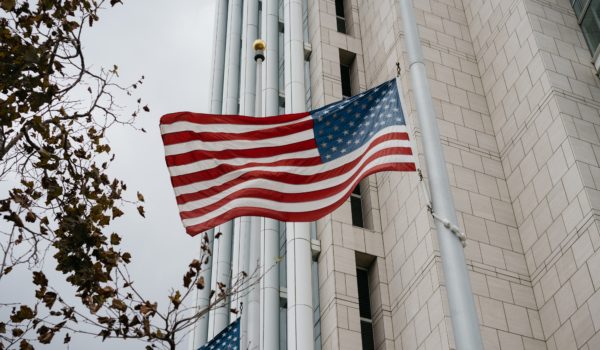Background
The U.S. Supreme Court recently clarified the distinction between government speech and when the government merely provides a public forum for private speech.
The First Amendment prevents the government from discriminating against speakers based on their viewpoint when it creates a public forum, or limited public forum. But when the government speaks for itself, the First Amendment does not demand airtime for all views. After all, the government must be able to promote programs or advocate policies to function. But the line between government speech and private expression can sometimes be blurry. The U.S. Supreme Court recently released a decision in Shurtleff v. Boston that distinguishes between government speech and the creation of a limited public forum in which viewpoint discrimination is prohibited.
Analysis
In a 9-0 decision in Shurtleff v. Boston, the Supreme Court held that the city of Boston violated the First Amendment by refusing the request of a Christian group to fly a Christian flag in front of city hall. The city refused the request even though it had approved hundreds of other third-party requests to fly flags over the years without any rejections. The issue raised was whether Boston engaged in government speech by flying third-party flags or whether it had inadvertently created a public forum for private speech. If the city had created a public forum, then refusing to fly a flag because of its religious nature amounted to viewpoint discrimination. Despite Boston’s loss, the decision is more instructive to local governments than harmful and does not disturb the government speech doctrine.
In this case, Boston owned three flagpoles in front of city hall. Boston flew the United States flag on one flagpole, the state flag on the second flagpole, and the city flag on the third flagpole. In the past, third parties requested to fly their flag instead of the city’s flag in connection with an event taking place near the flagpoles. Over a 12-year period, the city approved 284 flag-raising events and, until the request of the Christian group, never rejected one.
The Christian group asked the city to fly its flag while it held an event nearby. The city refused its request by explaining that the city’s policy was to refrain from flying non-secular third-party flags to avoid violating the First Amendment’s prohibition of government establishment of religion.
The group sued the city. The First Circuit held that the city was engaging in government speech when it flew third-party flags in front of city hall, and it, therefore, did not violate the First Amendment by refusing the request.
The Supreme Court reversed and concluded that Boston was not engaged in government speech when it permitted various flags to fly, but had rather created a limited public forum. Therefore, it had abridged the Christian group’s freedom of speech by refusing to fly its flag based on its religious viewpoint. At the same time, the majority emphasized the importance of the government speech doctrine: that a government is free to speak for itself, to formulate policies, and implement programs.
The Court set out three factors to review to determine whether a government engages in speech when it invites outside groups to participate in a program:
- The history of the expression at issue;
- The public’s likely perception as to who (the government or private person) is speaking; and
- The extent to which the government has actively shaped or controlled the expression.
While the first factor favored Boston, the Court found that the public would tend to view the speech of Boston as being inclusive. However, on the issue of whether Boston controlled the message, the Court found the answer was “not at all” and ultimately concluded this factor was “the most salient feature of the case.” The Court explained that although Boston may have endorsed some messages associated with certain flags (e.g., the pride flag), a local credit union flag’s connection to the city was “more difficult to discern.” Furthermore, the Court found the city had no policy (until after litigation commenced) on how to decide which flags it would fly and the city exercised no control over the flag raisings.
The Court also explained that if a local government wishes to speak for itself when it creates a similar program that involves third-party speech, it can easily do so. The Court helpfully pointed to the city of San Jose which provides a written policy stating that its flagpoles are not intended to serve as a forum for free expression by the public and lists approved flags that may be flown as an expression of the city’s official sentiments.
Conclusion
This decision is generally favorable to local governments. Even though Boston ultimately lost, the decision did not limit a government’s ability to engage in speech and it provided guidance for how to avoid inadvertently creating a public forum. It also clarified what the Court analyzes to determine if the government intends to speak for itself. It may be time for governments to review their policies in light of this decision.
If you have questions, or would like more information, please contact Philip Hartmann, Barry McGinley, Jesse Shamp, or any other member of Frost Brown Todd’s Government Services practice group.

